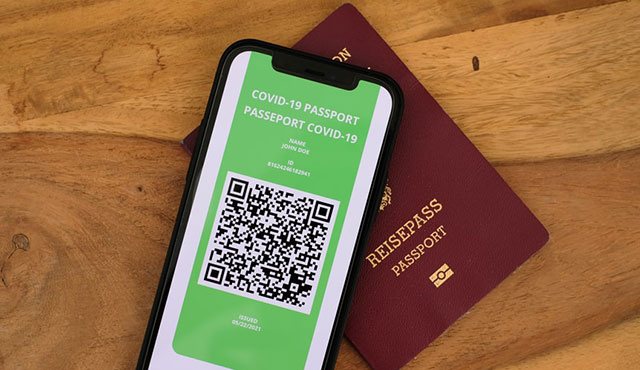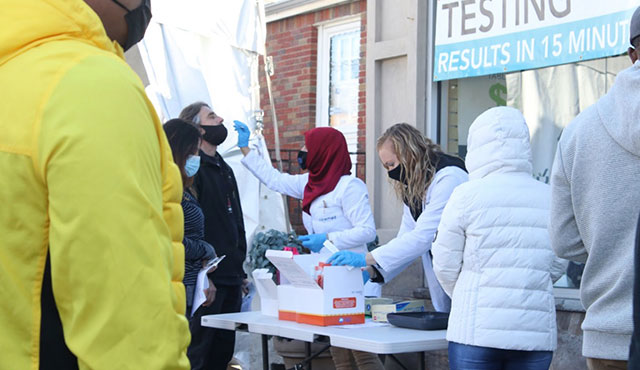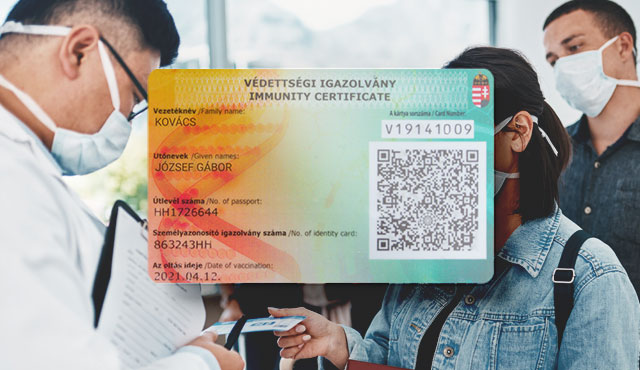What Are Vaccine Passports? Has COVID-19 Made Them Necessary?
Vaccine passports (more adequately called green digital certificates) have become a hot topic recently. Who heard of such a thing six months ago (maybe less)? In this article we’ll discuss:
- What is a vaccine passport?
- How does it help consumers? Government officials? Service providers?
- Does it protect against the spread of COVID-19 infection?
- What countries are using it?
- What are the arguments for using one? Against its use?
- What consistent standards apply to the form of such an ID?
- How do Osmond products increase the security of using such a passport?
Definition
As the COVID-19 pandemic has swept the world and now, as vaccination against it becomes available, we’ve learned many new terms. One such term is the vaccine passport.
Vaccine passports are government (or other agency) issued documents showing that their holder has received a vaccination against the virus or somehow has immunity or has a negative test issued by a verified health center. These passports can take various forms, which is exactly where some of the controversies around their adoption lie.

Form of the Passport
Various issuers design documentation of personal travel conditions in different forms. Israel issues a “Green Pass” certificate to facilitate entry to gyms, theatres, hotels, and other amenities. The International Air Transport Association (IATA) has its Travel Pass app for mobile electronic devices. Singapore Airlines is initiating use of the Travel Pass in mid-March 2021. The European Union is developing its version, and the Chinese have an app attached to the WeChat social media platform.
With the ubiquitous adoption of mobile phones and their ilk, it seems likely that an electronic app might become the more or less universal choice.
Purpose
The certificate’s fundamental purpose is to document the holder’s vaccination or immunity status. Additionally, it might carry data about the person’s health history, including tests for the virus, whether or not they have survived the disease, what strains they’ve been subjected to, etc.
How it Might be Used
A vaccine passport might be required for:
- Travel on public transportation, especially airlines.
- Entry to public eating and drinking places.
- Attendance at sports, music, and other such events.
- Attendance at authorized private gatherings.
- Even going to work!
Establishments organizing such functions are likely to be required to have personal document scanners, or other devices to verify entrants’ IDs and vaccination status.

Controversy Surrounding Vaccine Passports
Governments and many service providers like the convenience and marketable “security” of the vaccine passport. Others, such as privacy advocates, consider it an intrusion into an individual’s right to use his or her own body as they choose.
Who Should Issue Vaccine Passports?
Airlines, air travel associations, various government levels, and even a few hotels and hotel chains have experimented with different forms of documents to allow a customer to show evidence of being safe for others to be near.
How to Ensure No Discrimination in Free Movement Rights for Non-Vaccinated People?
The European Commission has proposed a Digital Green Certificate. Key elements of this proposed certificate are:
- Certification for vaccinated persons, those with negative and valid test results by a certified health center, and those who have recovered from the virus.
- Digital and paper versions, both with a QR code with important information and a digital signature to ensure authenticity.
- The Commission will build a gateway that authorities can use to verify certificate signatures across the EU. They will support Member States in developing similar software. No personal data passes through the gateway, and the Member State retains none.
- The certificates will be free of charge and in English and the Member State’s language.
- No discrimination between vaccinated and non-vaccinated individuals. If a Member State requires those with a Digital Green Certificate to test or quarantine, they must explain why.
- The certificate includes only necessary information – name, date of birth, date of issuance, information about vaccine/test/recovery, and a unique certificate identifier.
- The certificate is available to non-EU nationals residing in the EU.
- The Digital Green Certificate will remain in use only until the WHO declares the end of the pandemic.
Does the Vaccine Passport Help Prevent the Spread of COVID-19?
This is a question that hasn’t been answered. Most passports allow the holder to show they’ve been “jabbed” – vaccinated against COVID-19. Some allow one to demonstrate “presumed immunity” from having contracted and recovered from the virus.
A gradual return to normal will be possible when an adequate number of people have been vaccinated. The vaccine passport will provide an interoperable system to greatly assist in documenting progress toward this ideal outcome. This is all very important to people in their lives, as well as getting the economy back to health.
Other Questions
Does recovery from an actual infection with the virus result in immunity? That alone seems to be an open question. In addition, if this immunity does occur, how long does it last? How long does immunity last after one has received the vaccine?
What Do We REALLY Know About Vaccination? What Do We Not Know?
The Al Jazeera news service recently polled experts from the medical, legal, ethical, and other professions in the U.K., asking for their opinions on the vaccine passport concept.
Questions these experts cited are:
- How effective are the available vaccines?
- Might a certification give people a false sense of security?
- Is adding another criterion for dividing society (e.g., vaccinated, unvaccinated) a good idea from a socio-ethical perspective?
It seems there are no certain answers to these questions.

Establishing Identity
“Knowing your customer,” or KYC has become more complicated than it was even a few years ago. A recent study shows that banks’ customer onboarding process has stretched out to 24 days on average. Similarly, the procedures necessary to issue a vaccine passport, and positively identify the applicant, are just as complex.
Here are examples of documents accepted to identify individuals in various countries:

- Passports – recognized everywhere.
- National Identification Cards – recognized in India (Aadhaar), Argentina (DNI), Canada/United States (SIN/SSN), Hong Kong (HKID), and the Netherlands (BSN).
- Driving License – recognized in the United States, Canada, and the Netherlands.
- Voter ID card (INE) – recognized in Mexico, India, and Jamaica.
- Health Card – recognized in Canada.
In Europe, authorities have established the eHealth Network to issue and standardize a “trust framework.” This framework defines the rules and policies necessary to ensure that the identification procedure to issue COVID-19 health certificates is verifiable. Verifiers (border agents, airline personnel, etc.) can trust that a certificate is authentic and issued according to rules everyone agrees on.
What the Future Holds
In conclusion, it appears that travelers and others using public facilities will need to demonstrate that they didn’t get the COVID-19 virus. Also, in some cases, their inability to transmit the virus must be documented.
Despite all the controversy and questions around the subject, it seems that some form of the certificate will be the vehicle for documenting people’s condition to be allowed to enter or use a facility. A vaccine passport or variant will probably be that certificate. And for the certificate to be practical, a scanning device, such as an ID scanner machine like Combo Scan, will be necessary.
Adaptive Recognition is among the most experienced companies producing electronic scanning devices. Their latest innovation is the Osmond passport scanner and authentication device. If we compare AR’s product to others on the market, Osmond passport scanners and other automatic identity readers:
- Scan faster.
- Scan with higher resolution.
- Have larger scanning surfaces.
- Are easier to use.
- Employ oblique light, a technology double verifying the document’s genuineness.
Are you in a business that will need to authenticate your customers’ documentation electronically and automatically? Osmond is your source:

